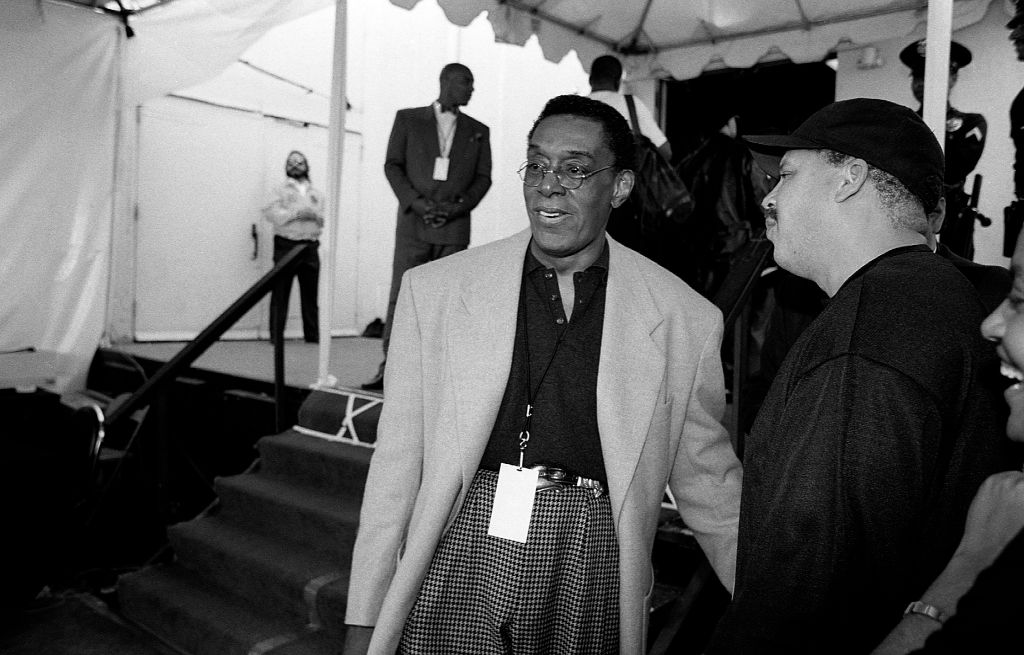The Life And Legacy Of Don Cornelius

Don Cornelius was the bridge that brought the rich legacy of Black music to a global stage. The Chicago native’s iconic dance show Soul Train made its official premiere in October 1971, running until March 2006, and what happened throughout its 35-season run was unimaginable.
The life and legacy of Don Cornelius: A visionary of soul and representation
Cornelius will always be remembered as a trailblazer who changed the face of American television. His creation of Soul Train, a groundbreaking television show, not only elevated Black music but also celebrated the richness of African-American culture at a time when representation on TV was minimal. Through his work, Cornelius opened doors for countless artists, dancers, and performers, and his legacy continues to resonate today.
Early life and career: From police officer to media pioneer
Born in Chicago in 1936, Cornelius was not immediately drawn to the entertainment industry. After graduating from high school, he worked as an insurance salesman and even served as a police officer, according to CBS and TODAY. It was during this time, particularly amid the Civil Rights Movement, that Cornelius began to reflect on the importance of visibility and representation for Black Americans, noted the LA Sentinel.
In the early 1960s, he made the bold decision to leave behind his career in law enforcement and pursue a future in broadcasting. Cornelius enrolled in broadcasting school and quickly transitioned to radio, working as a disc jockey and news reporter at Chicago’s WVON station. By 1967, he joined WCIU-TV, where he hosted A Black’s View of the News, a program that provided a distinct African-American perspective on current events, according to Celebrity Networth.
It was in 1970, with $400 of his own money and a clear vision in mind, that Cornelius took the next step in his career: he created Soul Train. Inspired by shows like American Bandstand, Cornelius sought to create a platform for Black music that would showcase R&B, soul, and dance in a way that was never before seen on television. His aim was clear: to celebrate and amplify Black culture on a national stage.
“I had a burning desire to see Black people presented on television in a positive light,” the dance show legend told ABC News. Cornelius knew innovation would be the key to differentiating Soul Train from other popular entertainment shows of the era.
“If American Bandstand goes right, we’re gonna go left. If Dick Clark goes up, we’re going to go down,” Cornelius said in a previous interview, according to a 2012 CBS special documenting the entertainment titan’s life.
Soul Train: A revolutionary show for a new generation

In 1971, Soul Train moved into national syndication, with its headquarters in Los Angeles, and became a fixture on television for over three decades. Under Cornelius’s leadership as creator, writer, producer, and host, Soul Train offered a stage for some of the greatest artists of the 20th century, many of whom might never have been given the opportunity to perform on mainstream television. Legends such as James Brown, Aretha Franklin, Stevie Wonder, Michael Jackson, and Smokey Robinson appeared on the show, exposing their talents to a broader audience.
“He integrated the culture and gave people of all races to see a positive Black image,” Robinson told CBS in their 2012 special.
The show’s legacy went beyond music. Soul Train was a space for fashion, style, and dance, with the Soul Train Line becoming one of the most iconic symbols of the show. The line featured dancers showcasing their best moves to the hottest tracks of the time, creating a sense of community and celebration. It wasn’t just a show; it was a cultural event.
Cornelius’s smooth, calm delivery and his signature catchphrase—“I’m Don Cornelius, and as always in parting, we wish you love, peace, and soul!”—became as synonymous with the show as the music itself. It embodied the spirit of Soul Train, a show that sought to offer more than just entertainment: it offered a space for joy, pride, and connection. The media giant hosted the iconic show from 1971 to 1993.
Expanding the legacy: The Soul Train Music Awards and more
Soul Train was more than just a television show. In addition to the program itself, Cornelius created the Soul Train Music Awards and the Soul Train Lady of Soul Awards, both of which honored outstanding achievements in Black music. These events not only celebrated the industry’s finest but also helped further cement the importance of Black artists in the cultural fabric of America.
Despite the challenges Cornelius faced behind the scenes, including battles with health issues and personal struggles, the Soul Train brand continued to grow, even long after the show ended in 2006. The Soul Train Music Awards continue to be a highlight of Black entertainment and are currently produced and broadcast by BET, ensuring that Cornelius’s work continues to shine in the public eye.
A life of challenges: personal struggles
While Don Cornelius’s professional accomplishments were extraordinary, his personal life was more complicated. In 1982, Cornelius underwent a life-changing 21-hour surgery to address a congenital issue with the blood vessels in his brain. Though the surgery was successful, it had lasting effects on his health, leaving him with physical challenges that affected his day-to-day life, according to ABC News.
In addition to health struggles, Cornelius faced personal hardships. In 2008, he was arrested for felony domestic violence involving his estranged wife, Victoria Avila-Cornelius. The following year, he pleaded no contest to charges of corporal injury and was placed on probation, a moment that weighed heavily on his reputation and personal life. These personal challenges, alongside his ongoing health issues, painted a complex picture of the man behind the television persona.
On Feb. 1, 2012, Cornelius tragically passed away from a self-inflicted gunshot wound. At the time of his death, he had accumulated a net worth of $10 million. But more important than his financial success was the profound impact he had on American culture.

A role model and a cultural icon
Throughout his life, Cornelius was more than just a media mogul; he was a role model for countless young African-Americans. He provided them with a sense of pride and a platform to be seen and heard in ways that were previously unavailable. In an interview with ABC News, Aretha Franklin, one of the many stars who appeared on Soul Train, described the iconic dance show host as a “gentleman first, last and always,” thanking him for opening doors for so many artists like herself.
“He had a great sense of humor, beautiful sense of humor,” she added, while highlighting the impact of appearing on the hit show. “An appearance on Soul Train meant what it could mean. A person being virtually an unknown person to an American sensation overnight, very similar to American Idol. It was like if you had a record that sold maybe 10,000 copies, to be on Soul Train meant it might sell 100 to 200, to 300 or even 500,000 or more.”
Iconic composer and label executive, Quincy Jones shared a similar sentiment.
“Before MTV, there was Soul Train, that will be the great legacy of Don Cornelius. His contributions to television, music, and our culture as a whole will never be matched…”
Cornelius’ creation of Soul Train and his dedication to showcasing the talents of Black artists helped pave the way for future generations of entertainers, musicians, and producers—and for that, we thank you, Mr. Cornelius.
SEE MORE:
Jan Gaye Talks Life With Marvin Gaye In New Book, “After The Dance”
Lisa Bonet Breaks Her Silence On Cosby Allegations
The Life And Legacy Of Don Cornelius was originally published on newsone.com






